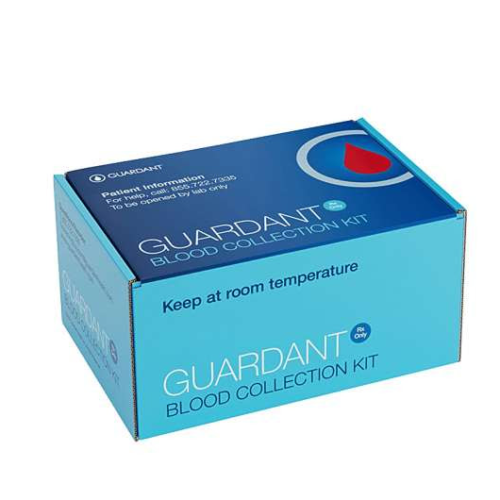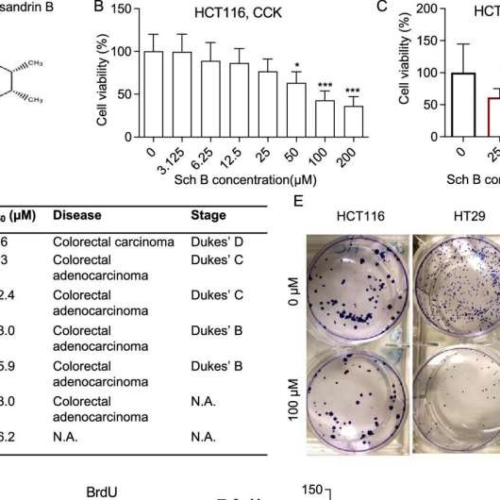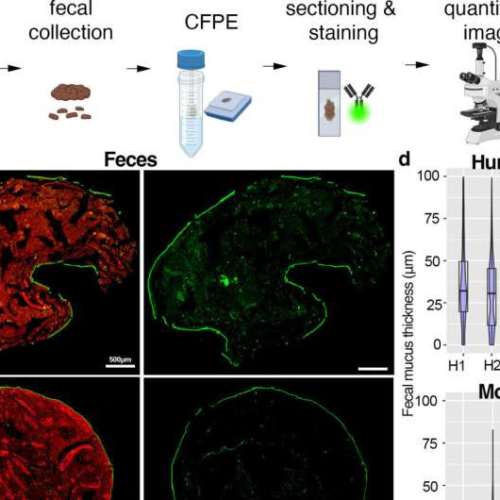by Dennis Thompson Daily low-dose aspirin can help prevent cancers from returning in about a third of colon cancer patients, a new study says. ADVERTISING Taking 160 milligrams of aspirin a day cuts the risk of cancer recurrence in half among colon cancer patients with a mutation in their PI3K genes, researchers reported at the...
Tag: <span>Colon Cancer</span>
Blood test accurately detects colon cancer
by Dennis Thompson An experimental blood test can effectively and accurately detect colon cancer in middle-aged folks and seniors, a new study says. The research is published in the Journal of Clinical Oncology. The blood test was 81% accurate in detecting colon cancer among people who have the disease, researchers reported at the 2025 American Society of Clinical...
Blood test could guide use of anti-inflammatory drug celecoxib to reduce risk of colon cancer recurrence
by Dana-Farber Cancer Institute Credit: CC0 Public Domain A data analysis from a randomized clinical trial for stage 3 colon cancer patients by investigators at Dana-Farber Brigham Cancer Center found that patients with evidence of residual cancer in their blood after surgery to remove the cancer, may benefit from adding of celecoxib, to post-surgery treatment. The...
Digital twin research finds colon cancer cells can be reverted to normal cells
by The Korea Advanced Institute of Science and Technology (KAIST) igure 6. Schematic diagram of the research results. Professor Kwang-Hyun Cho’s research team developed a source technology to systematically discover key control factors that can induce reversibility of colon cancer cells through a systems biology approach and a digital twin simulation analysis of the differentiation trajectory...
Researchers find previously unknown links between microbial bile acids and the risk of colon cancer
by University of Wisconsin-Madison From left, Ting Fu, assistant professor in the UW–Madison School of Pharmacy, postdoctoral researcher Xingchen Dong, and graduate student Fei Sun prepare samples for examination. Credit: Sally Griffith-Oh / UW–Madison Microbes living in our guts help us digest food by reshaping the bile acids that our livers produce for breaking down fats....
Don’t skip colonoscopy for new blood-based colon cancer screening, study says
by Stanford University Medical Center Credit: Karolina Grabowska from Pexels Newly available blood tests to screen for colorectal cancer sound far more appealing than a standard colonoscopy. Instead of clearing your bowels and undergoing an invasive procedure, the tests require only a simple blood draw. But are the tests effective? A study led by researchers at...
FDA panel gives nod to blood test for colon cancer
MAY 26, 2024 by Robin Foster A U.S. Food and Drug Administration advisory panel on Thursday recommended the approval of a new blood test that can spot colon cancer. The panel voted 7-2 that the benefits outweighed the risks when using the Guardant Health’s Shield test for colon cancer. “The advisory committee’s strong support for...
Do I need a colonoscopy? Explore an at-home colon cancer screening option
by Melissa Moore, Rush University Medical Center Credit: Teona Swift from PexelsWe know that a colonoscopy is the most effective tool for the early detection and prevention of colon cancer. But anyone who has ever had a colonoscopy also knows that it’s not necessarily something to look forward to. “Many patients are hesitant to undergo this...
Research suggests natural compound could be promising new alternative treatment for colon cancer
by University of Portsmouth Schisandrin B inhibits the proliferation of human colon cancer cells. Credit: ACS Pharmacology & Translational Science (2024). DOI: 10.1021/acsptsci.4c00009A new study has discovered a naturally occurring compound found in fruit has the potential to be an effective alternative treatment for colon cancer. The disease, which affects the large intestine, remains a significant...
Mucus contains vital data to help address diseases such as inflammatory bowel disease and colon cancer
by University of British Columbia Visualizing and quantifying mucus barrier functions on fecal sections. a. Processing scheme for processing feces for mucus analysis in situ. b. Tiled cross-section of healthy human feces (upper) and mouse feces (lower) dual stained with FISH probes (red) and a rabbit polyclonal antibody targeting human MUC2 (see Methods; green). c. Quantitative...




